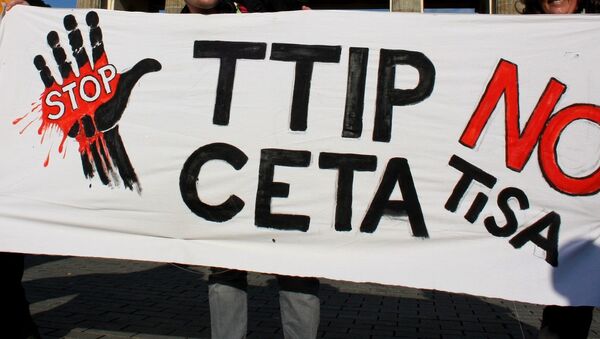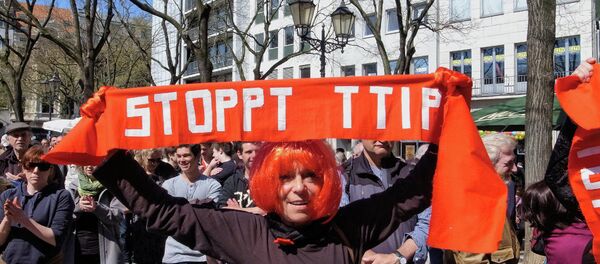It has been widely criticized for bypassing the World Trade Organization (WTO) multilateral format and national regulations, as well as for excluding some major trade players such as the BRICS countries, namely Brazil, Russia, China and South Africa.
“What I have learned is that TiSA is a threat [because] of the undue restrictions [it places on] the governments’ right to regulate and to introduce new regulations in the public's interest. That is threat to democracy,” Hubert Schillinger, director of the Friedrich Ebert Stiftung watchdog, said.
Schillinger added that TiSA's rules could create a scenario of a "one-way street of privatization of services." Among such rules, he mentioned the so-called “ratchet clause,” which prescribes that if a trade barrier is removed it cannot be reintroduced in the future.
Critics of TISA say that it attempts to eliminate trade barriers in sectors favorable to Washington but not in areas where liberalization does not serve US interests and paves the way for coordinated, supranational labor laws, medical systems, finance and industrial policy that will undermine local governments' ability to protect its citizens.



